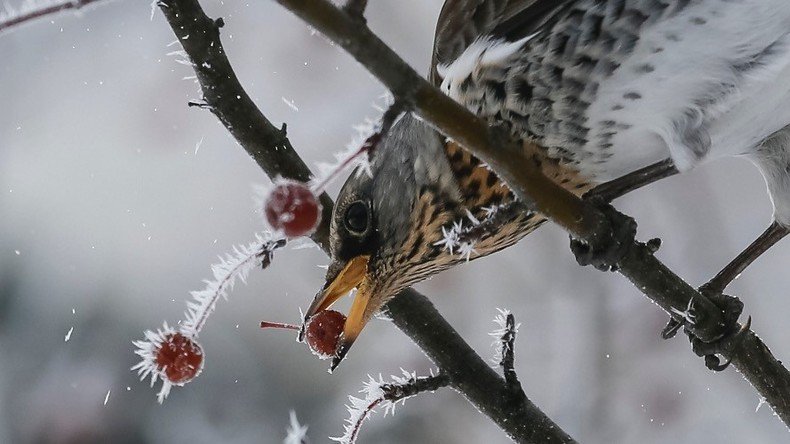4,200 yo bird found 'perfectly preserved' in ice (PHOTO)

A frozen 4,200-year-old redwing thrush has been found perfectly preserved in Norway. The bird, whose age was determined through carbon tests, was dissected to determine if the bird’s organs have also survived the test of time.
The thrush was discovered by a warden with the Norwegian Nature Supervisor Agency on the edge of a snow bank in the Oppdal mountains, according to Jorgen Rosvold, a researcher with the Norwegian University of Science and Technology, who spoke to NRK.
“That it is 4,000 years old is absolutely fantastic,” said Rosvold. “We have never opened and seen how a 4,000 year-old bird looks inside,” he added.
Fant 4200 år gammel trost begravd i isen. – Det ser ut som om den døde i fjor https://t.co/eHiLBdRETIpic.twitter.com/gZh57WQxrw
— NRK (@NRKno) August 4, 2017
Researchers initially believed the bird to be no more than a few hundred years old, and now believe it flew over Norway’s skies thousands of years ago. It’s also thought the bird was caught and killed by a wolverine or fox.
“It was probably caught by a wolverine or a fox. We know that wolverines use ice to store food during the summer. So this thrush may have been put in the ice by a wolverine and has only been found again now,” Rosvold said.
READ MORE: Secret Stone Age engravings can only be seen at night, archaeologists find
An examination of the bird revealed a number of intact organs, including the heart and liver, which could provide an unprecedented insight into living conditions in Norway all those years ago.
“[Intact organs] would give us that opportunity to carry out tests and give us an insight into environmental conditions when the bird died,” said Rosvold prior to the dissection.












